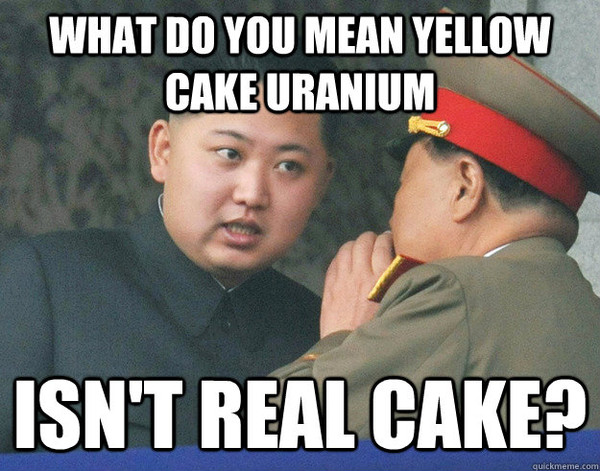Based on what we know so far, the two suspects in the Boston Marathon bombings were likely self-motivated terrorists who were probably not part of a larger al Qaida plot, but may well have been inspired and perhaps prepared in part by ideology and training from the global jihadist network. Based on police reports and witness testimony, the older brother, 26-year-old Tamarlan Tsarnaev, appeared to be disaffected and angry, a “loser” in his uncle’s words. He may have decided that his life in America wasn’t working and wanted to go out with a literal bang, inducing his more Americanized and integrated younger brother, Dzhokar, 19, to come along.
For U.S. Muslims, the revelation of the identities of the Boston suspects is the worst possible news, says Hedieh Mirahmadi, a Muslim community organizer who works at the International Cultural Center in Gaithersburg, Md., an area where many Muslims live—including an uncle of the two suspects. “It can’t get worse than this. It’s really a tragic day for our community. And for Americans," Mirahmadi says. “The older brother seems to fit the usual profile of a socially alienated Muslim youth, and points to all the concerns we’ve had about the influence of radicalization, the markers we look for. The younger brother, though, doesn’t. He was integrated. “
What’s scary now, she adds, is that many Americans will come to believe that even relatively “integrated” Muslims, like Dzhokar, are suspect for radicalization. “There’s an issue right now with young Muslims feeling a need for justice. That’ s not directed usually at America per se, but it’s distress at the condition of Muslims around the world.” In a statement delivered to the media on Friday, the two brothers’ uncle, Ruslan Tsarni, a native Chechen, called them “losers” who simply could not get “settled” and harbored “hatred to those are.” “I can’t imagine anything else to do with religion, with Islam. It’s a fraud. It’s fake. ... Somebody radicalized them, but it’s not my brother, who spent his life bringing bread to their table. Fixing cars.”
Quietly, working with the Obama administration, Mirahmadi, president of the World Organization for Resource Development and Education, which seeks to enhance understanding between Muslim and non-Muslim communities, and other American Muslim community leaders have been trying to identify signs of radicalization in young American Muslims and working to stop it before it leads to destructive acts. But Mirahmadi and other critics say the Obama administration has sought to gloss over the issue of purely Islamist radicalization so as not to offend Muslims, labeling its programs “combating violent extremism” instead. But seeking to do that while studiously avoiding the role of Islamism avoids the main issue, they say.
Even if the two suspects were not part of a larger jihadist plot, the bombings should not be seen as an isolated act. The global jihadist movement has brought under its umbrella many young men originally from Chechnya, Kyrgyzstan and other Caucasus republics, as the Tsarnaev brothers appear to be. Some of these terrorists have been trained at the same school near Peshawar that trained the Taliban, called Darul Uloom Haqqania. Harvard terrorism expert Jessica Stern says she met two Chechens being trained there in 2000, and it is also known that nationalist movements in these countries in the Caucasus have been largely “coopted by the jihadists.”
It remains unclear what may have motivated either Tamarlan or Dzhokar Tsarnaev. The older brother, Tamerlan, who died in a police shootout, appeared far more upset with his life in America. "I don't have a single American friend," he reportedly said. "I don't understand them." He was also reportedly arrested for assaulting his girlfriend in 2009.
Angry, disaffiliated young men lash out in different ways in different cultures. Adam Lanza, the Newtown, Conn., murderer, may have acted in the way he did because he had absorbed the sick culture of mass shootings. It’s entirely possible that Tamarlan Tsarnaev lashed out in the way he did because he was just enough of a jihadi to want to follow that path, while not being part of a larger plot. His act may well have been the product of an increasing trend: lone, self-motivated jihadis who have their own private grievances but find an outlet in the radical Islamist ideology that has gone viral over the past ten years online—and who are sometimes empowered by jihadist and explosives training, whether paramilitary or online. The amateurish nature of the Boston plot -- the two men apparently didn't even have an escape plan -- points to a do-it-yourself plot.
In an interview in 2010, the former deputy assistant secretary of state in the Bureau of Near Eastern Affairs under George W. Bush, Scott Carpenter, said both the Bush and Obama administrations have fallen short in tackling the problem of radicalization. “There has to be a recognition that Islamist ideology plays an important role,” he said. “You can’t have an effective prescription without an accurate diagnosis. Part of the problem is because we haven’t figured out a way to talk about this in anything but a politically correct way, we don’t talk about it.”



